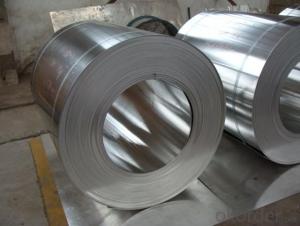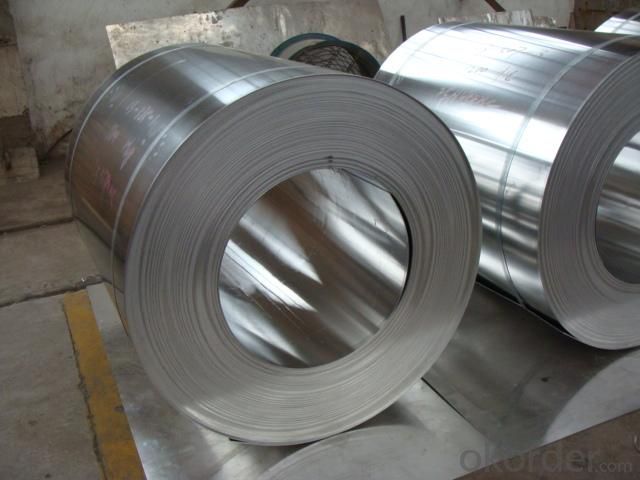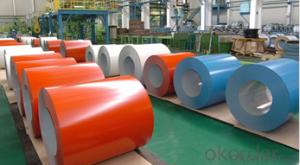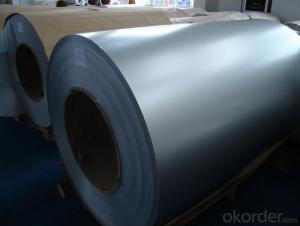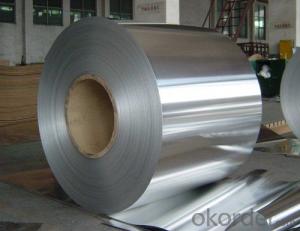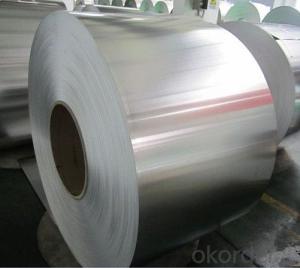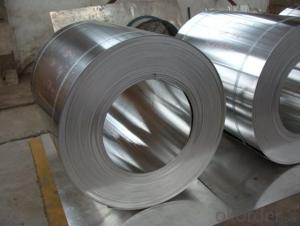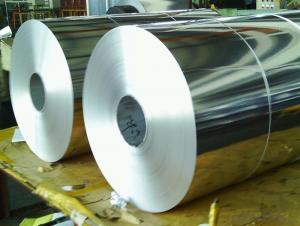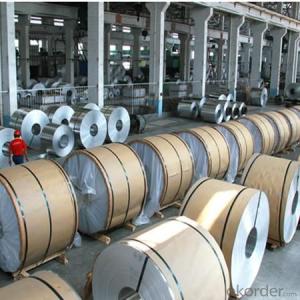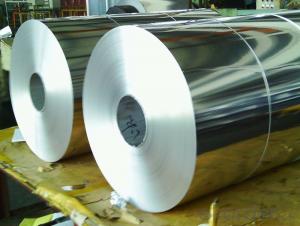Gentek Aluminum Coil 5052 Temper HO 0.4mm 0.5mm 0.6mm Thick Aluminum Roll
- Loading Port:
- Shanghai
- Payment Terms:
- TT OR LC
- Min Order Qty:
- 5 m.t.
- Supply Capability:
- 6000 m.t./month
OKorder Service Pledge
OKorder Financial Service
You Might Also Like
Specification
5052 Temper Ho 0.4mm 0.5mm 0.6mm Thick Aluminum Roll
Applications:
Aluminum foil roll is widely used in construction,decoration,hardware,
electric appliances,machinery and other industrial and civil purposes,
such as electronic capacitor,composite cooker,rice cooker,refrigerator,
computer casting,telecommunication,equipment,lamp shade,air conditioner,
cosmetics cover and so on.
Or it can be made as customers’ requirement.
Specifications
color aluminum coil
1000 series 1100 10160 1200
surface could be: Brushed, drawing, embossed, printing
color: red,
color aluminum coil
.Alloy type: 1050/1060/1100/1350
2.Temper: H16, H18, H22, H24
3.Thickness range: 0.1mm-4mm
4.Width range: 25mm-1600mm
5.Surface:finish: bright & smooth surface, without flow lines, slight oiled to avoid white rusting.
6.Quality material:totally free from such defefects as roll marks, edge damager, camber, white rust, oil patches, holes, break lines,
color aluminum coil
Name |
color aluminum coil |
Alloy or not | yes |
Alloy | 1100H16/18, 3003H24,3003H26,3005H26,8011,3004,3105,5005,etc. |
Thickness | 0.1-4mm |
Width | ≤1600mm |
MOQ | 5T |
Coating finish | Brushed, drawing, embossed, printing |
Color | As to code RAL |
Surface | Embossed,Mill Finish,Coated,Brushed |
Gloss | 10-90%(EN ISO-2813:1994) |
Total coating thick | PVDF27 ~35micron |
Polyester18~27micron(EN ISO-2360:1995) | |
Coating hardness | 2H |
Adhesion | 5B (EN ISO-2409:1994) |
Impact resistance | No cracking and peeling (A.S.T.M D2794-1993) |
Flexibility (T-bend) | 0T- 2T |
MEK resistance | 100 |
Certification | ISO9001:2000, CE, SGS |
Coil's standard diameter | 1100mm |
Inner Diameter | 405mm/505mm |
Coil's standard weight | 2000kgs |
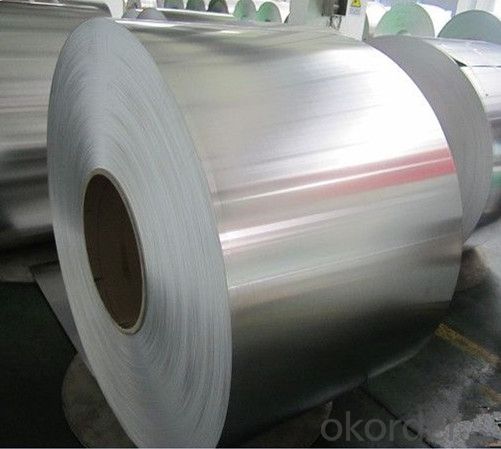
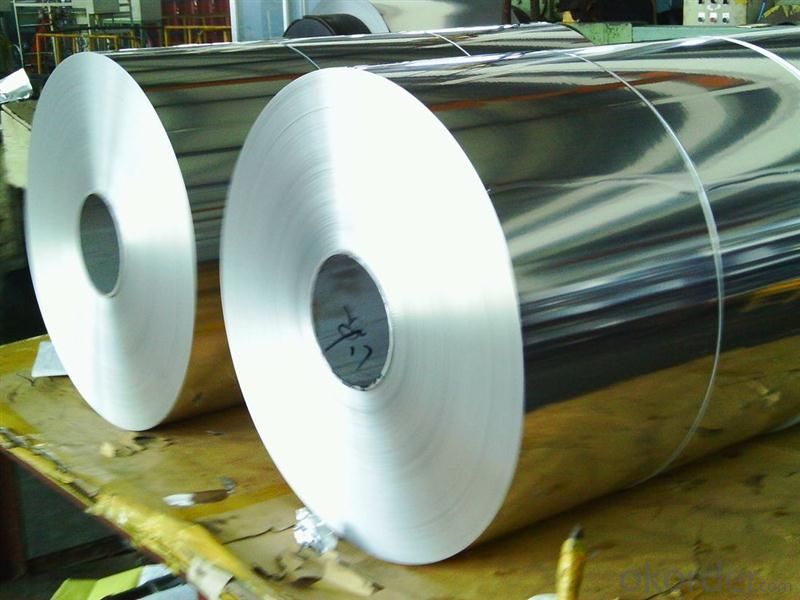
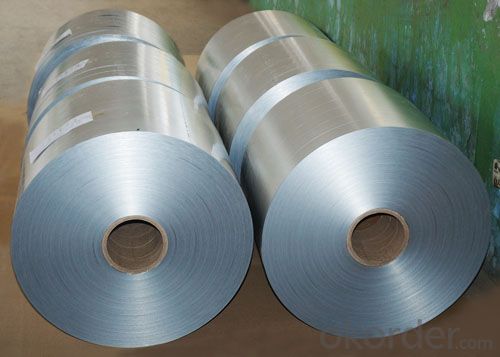
- Q: How are aluminum coils used in the production of sporting goods?
- Aluminum coils are used in the production of sporting goods primarily for their lightweight and durable properties. They are commonly used in the manufacturing of sports equipment such as baseball bats, tennis rackets, and bicycles. The coils are shaped, formed, and molded into the desired product, providing strength and flexibility while reducing overall weight. This allows athletes to have better control, enhanced performance, and reduced fatigue during sports activities.
- Q: Can aluminum coils be painted?
- Yes, aluminum coils can be painted. Painting aluminum coils can provide an added layer of protection against corrosion and enhance their aesthetic appearance. However, it is important to properly prepare the surface before painting to ensure good adhesion and durability. This typically involves cleaning the coils thoroughly, removing any existing paint or coatings, and applying a primer specifically designed for use on aluminum surfaces. Once the primer has dried, a suitable paint can be applied using a brush, roller, or spray. It is recommended to use a high-quality paint specifically formulated for use on metal surfaces to ensure long-lasting results. Additionally, it is important to follow the manufacturer's instructions and consider any environmental factors that may affect the painting process, such as temperature and humidity.
- Q: How does aluminum ingot be processed to aluminum coil (aluminum sheet)?
- First it should be made into blank and then put on the rolling mill.
- Q: How are aluminum coils used in the production of automotive heat shields?
- The production of automotive heat shields heavily relies on aluminum coils. These shields are vital in safeguarding different parts from excessive heat produced by the engine, exhaust system, or other heat sources. Typically, these shields are made from lightweight and heat-resistant materials, making aluminum coils a popular choice because of their exceptional thermal conductivity, durability, and corrosion resistance. To manufacture the heat shields, aluminum coils undergo a process of unwinding and cutting into sheets of the desired size. These sheets are then shaped using various techniques like stamping, bending, or deep drawing. Aluminum's malleability makes it perfect for creating heat shields with intricate geometries, ensuring a precise fit in the vehicle. Once the desired shape is achieved, the aluminum sheets are often treated with a surface coating to improve heat resistance and prevent corrosion. This coating can be in the form of a ceramic or metallic layer, serving as an additional barrier against extreme temperatures. Furthermore, the formed and coated aluminum sheets are usually combined with other insulating materials, such as ceramic fibers or laminated films, to further enhance the heat shield's performance. These additional layers aid in reducing heat transfer by reflecting or absorbing the heat energy, thus protecting surrounding components from potential damage or overheating. Finally, the assembled heat shields are affixed in specific locations within the vehicle, such as around the exhaust system or near the engine, using fasteners or adhesive techniques. The lightweight nature of aluminum coils ensures that the heat shields do not add unnecessary weight to the vehicle, which is crucial for maintaining fuel efficiency and overall performance. In conclusion, aluminum coils are extensively employed in the production of automotive heat shields due to their excellent thermal conductivity, durability, and corrosion resistance. Their ease of shaping and molding, coupled with surface coatings and additional insulating layers, guarantee effective heat insulation and protection for various vehicle components.
- Q: This question asks about the environmental impact of aluminum coils, including potential effects on the ecosystem and human health.
- <p>Aluminum coils, when produced and used responsibly, have minimal environmental impact. However, improper disposal or manufacturing can lead to pollution. Aluminum production requires significant energy, contributing to greenhouse gas emissions. During manufacturing, if not managed properly, can release harmful substances into the air and water. Yet, aluminum is highly recyclable, reducing its environmental footprint over time. When disposed of improperly, aluminum can contribute to litter and leach harmful substances into the soil and water, affecting wildlife and potentially human health. Responsible recycling and manufacturing practices are crucial to mitigate these effects.</p>
- Q: What are the weight ranges of aluminum coils?
- The weight ranges of aluminum coils can vary depending on the specific application and industry. However, in general, aluminum coils can range from a few hundred pounds to several thousand pounds in weight.
- Q: Is it possible to utilize a grinder for cutting an aluminum coil?
- <p>Yes, you can use a grinder to cut an aluminum coil, but it's important to use the right type of grinder and blade. An angle grinder with a cutting wheel or a metal cutting disc is suitable for this task. Ensure the grinder is powerful enough for the thickness of the aluminum coil and that you're using the correct safety equipment, such as goggles and gloves. Keep the cutting area clear of debris and ensure good ventilation to avoid inhaling aluminum dust, which can be harmful. Always follow the manufacturer's instructions for your specific grinder model to ensure safe operation.</p>
- Q: What are the common industry standards for aluminum coil specifications?
- Various organizations, such as the Aluminum Association (AA) and the American Society for Testing and Materials (ASTM), establish the common industry standards for aluminum coil specifications. These standards guarantee consistency and uniformity in the manufacturing and utilization of aluminum coils in different industries. The Aluminum Association (AA) is responsible for defining the standards for aluminum alloys and their corresponding temper designations. By classifying aluminum alloys based on their chemical composition and mechanical properties, the AA enables manufacturers to produce coils with specific characteristics suitable for different applications. For instance, AA 3003 is commonly utilized for general-purpose coils, while AA 5052 is preferred in marine applications due to its superior corrosion resistance. Aside from alloy classification, the AA also provides guidelines regarding coil dimensions, tolerances, and surface finishes. These specifications ensure that aluminum coils adhere to the required dimensions and quality standards, facilitating their integration into various manufacturing processes. The American Society for Testing and Materials (ASTM) also holds a significant role in establishing standards for aluminum coil specifications. ASTM offers guidelines for different tests and procedures to assess the quality and performance of aluminum coils. These tests encompass mechanical property evaluations, such as tensile strength and elongation, as well as assessments of surface finish, corrosion resistance, and dimensional stability. Furthermore, specific industries may have their own set of standards for aluminum coils used in their applications. For instance, the automotive industry could have industry-specific standards to ensure compliance with particular performance requirements in vehicle manufacturing. In conclusion, the common industry standards for aluminum coil specifications cover alloy designation, dimensional tolerances, surface finishes, and mechanical properties. Adhering to these standards guarantees consistency, quality, and compatibility across diverse industries and applications.
- Q: What is the purpose of an aluminum coil and what are its applications?
- <p>An aluminum coil is a versatile material that serves various functions. It is used in numerous applications due to its lightweight, corrosion resistance, and high thermal and electrical conductivity. Common uses include manufacturing heat exchangers, transformers, and electrical wiring. Aluminum coils are also utilized in the construction of automotive parts, aerospace components, and in the packaging industry for cans and foils. Additionally, they are employed in the HVAC industry for air conditioning and heating systems, and in the production of various consumer goods.</p>
- Q: What is the role of aluminum coils in the construction of aircraft?
- The role of aluminum coils in the construction of aircraft is crucial and multifaceted. Aluminum is the preferred material for manufacturing aircraft due to its exceptional properties such as lightweight, durability, and corrosion resistance. Aluminum coils, specifically, are used extensively in various parts of an aircraft, including the fuselage, wings, and structural components. One of the primary functions of aluminum coils is to provide structural strength while maintaining a lightweight design. By using aluminum coils, aircraft manufacturers can reduce the overall weight of the aircraft, leading to improved fuel efficiency and increased payload capacity. This is especially important in aviation, where every ounce of weight reduction can have a significant impact on performance and operational costs. Additionally, aluminum coils play a crucial role in the aerodynamic design of an aircraft. These coils are used to shape the wings and other aerodynamic surfaces, allowing for better airflow and reduced drag. The flexibility of aluminum coils enables engineers to create complex, curved shapes that optimize the aircraft's aerodynamic performance, resulting in improved maneuverability and reduced fuel consumption. Another vital aspect of aluminum coils in aircraft construction is their corrosion resistance. Aluminum naturally forms a protective oxide layer when exposed to air, making it highly resistant to corrosion. This property is essential in ensuring the longevity and structural integrity of the aircraft, particularly when exposed to harsh environmental conditions, such as high-altitude or coastal regions. Furthermore, aluminum coils are used in the fabrication of heat exchangers, which are crucial components in the aircraft's cooling and ventilation systems. These coils efficiently transfer heat either to or from the air, depending on the system's requirements, allowing for effective temperature control within the aircraft's cabin and engine compartments. In conclusion, the role of aluminum coils in the construction of aircraft is indispensable. They provide structural strength, contribute to aerodynamic efficiency, offer corrosion resistance, and facilitate efficient heat exchange. The utilization of aluminum coils allows for the development of high-performance, reliable, and fuel-efficient aircraft essential for modern aviation.
Send your message to us
Gentek Aluminum Coil 5052 Temper HO 0.4mm 0.5mm 0.6mm Thick Aluminum Roll
- Loading Port:
- Shanghai
- Payment Terms:
- TT OR LC
- Min Order Qty:
- 5 m.t.
- Supply Capability:
- 6000 m.t./month
OKorder Service Pledge
OKorder Financial Service
Similar products
Hot products
Hot Searches
Related keywords
